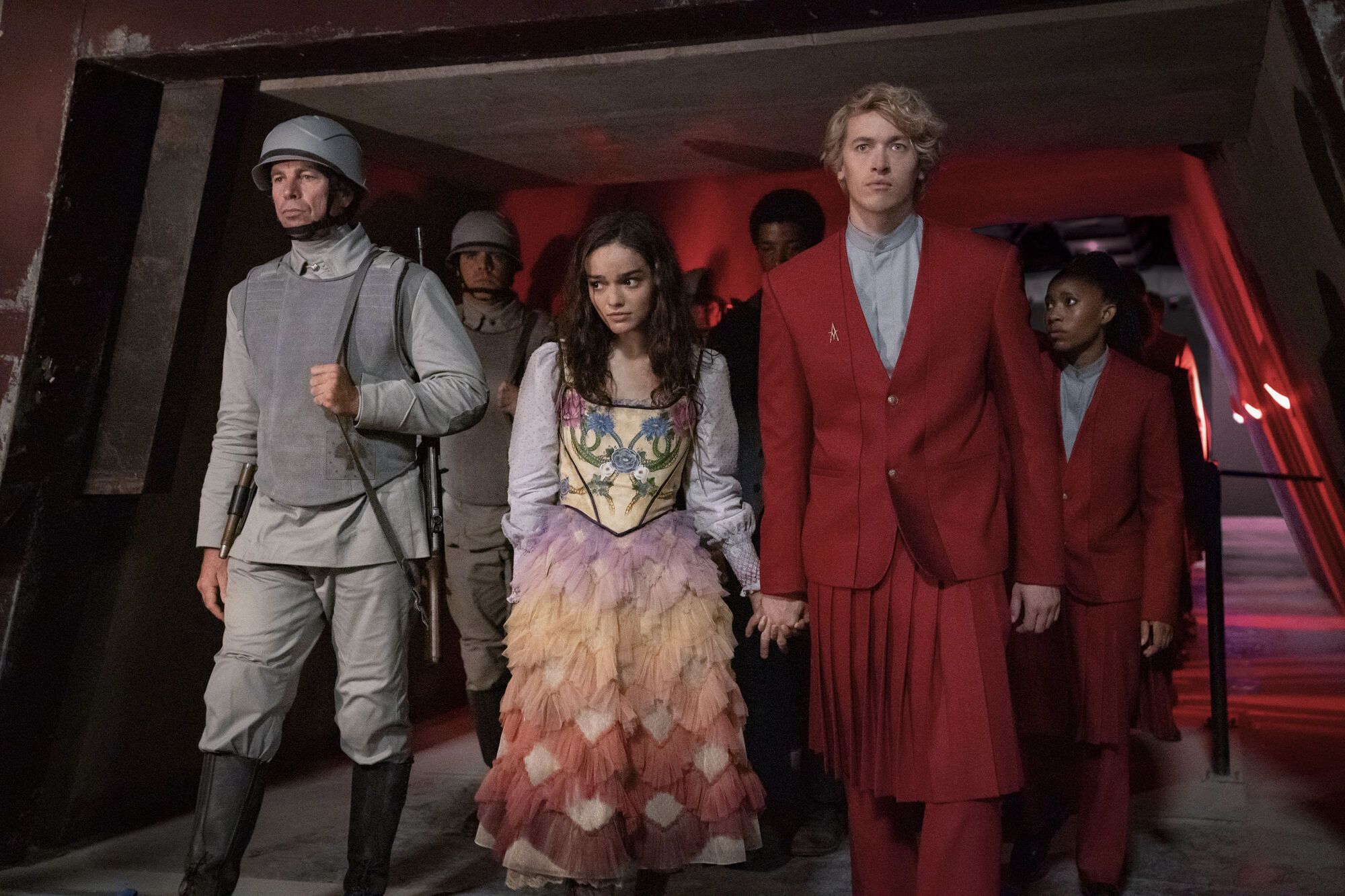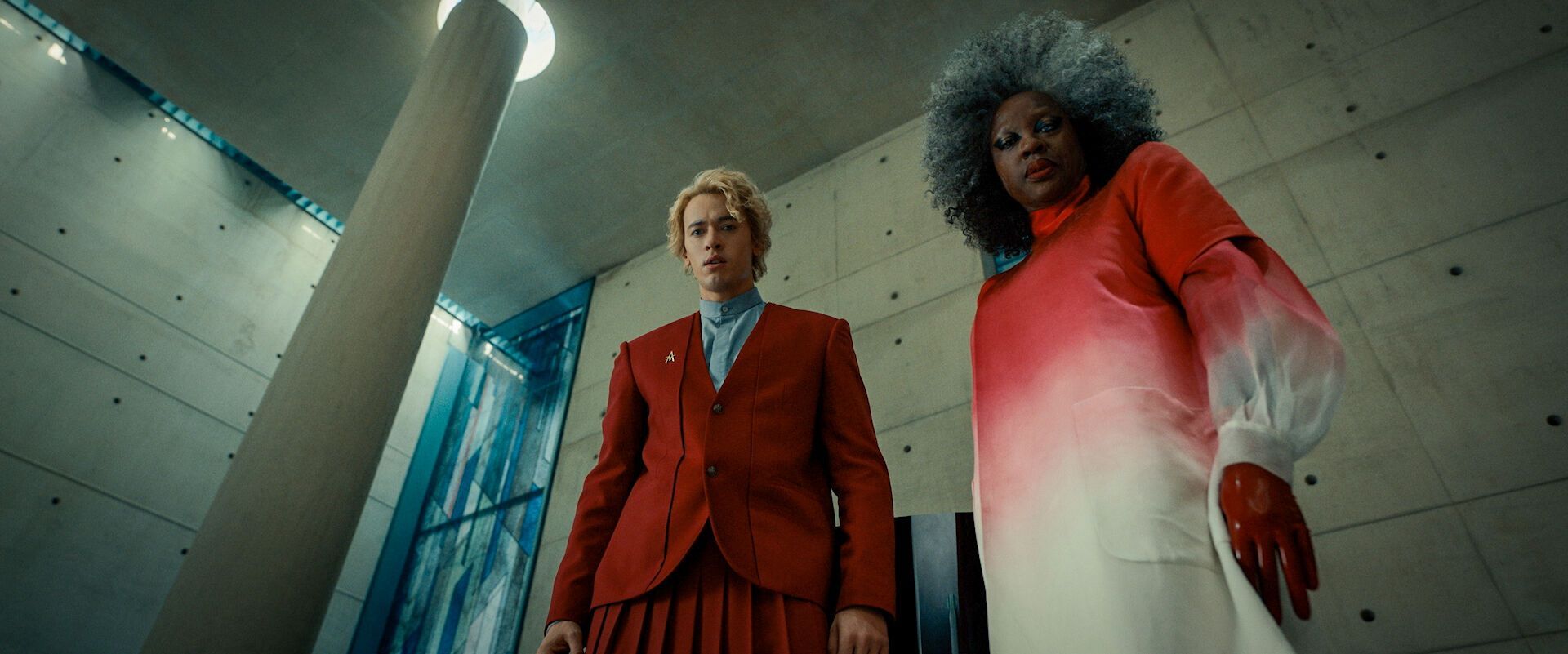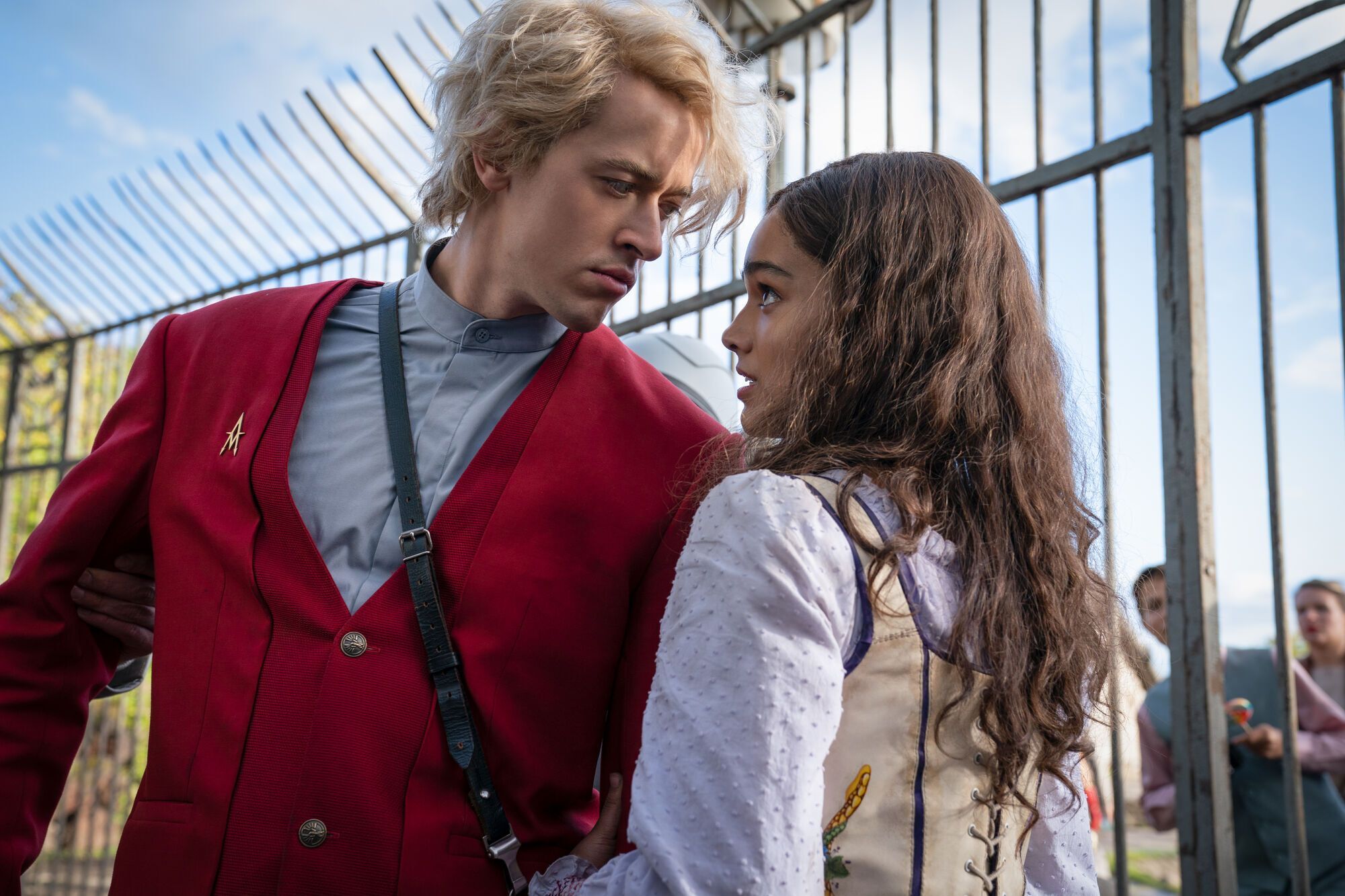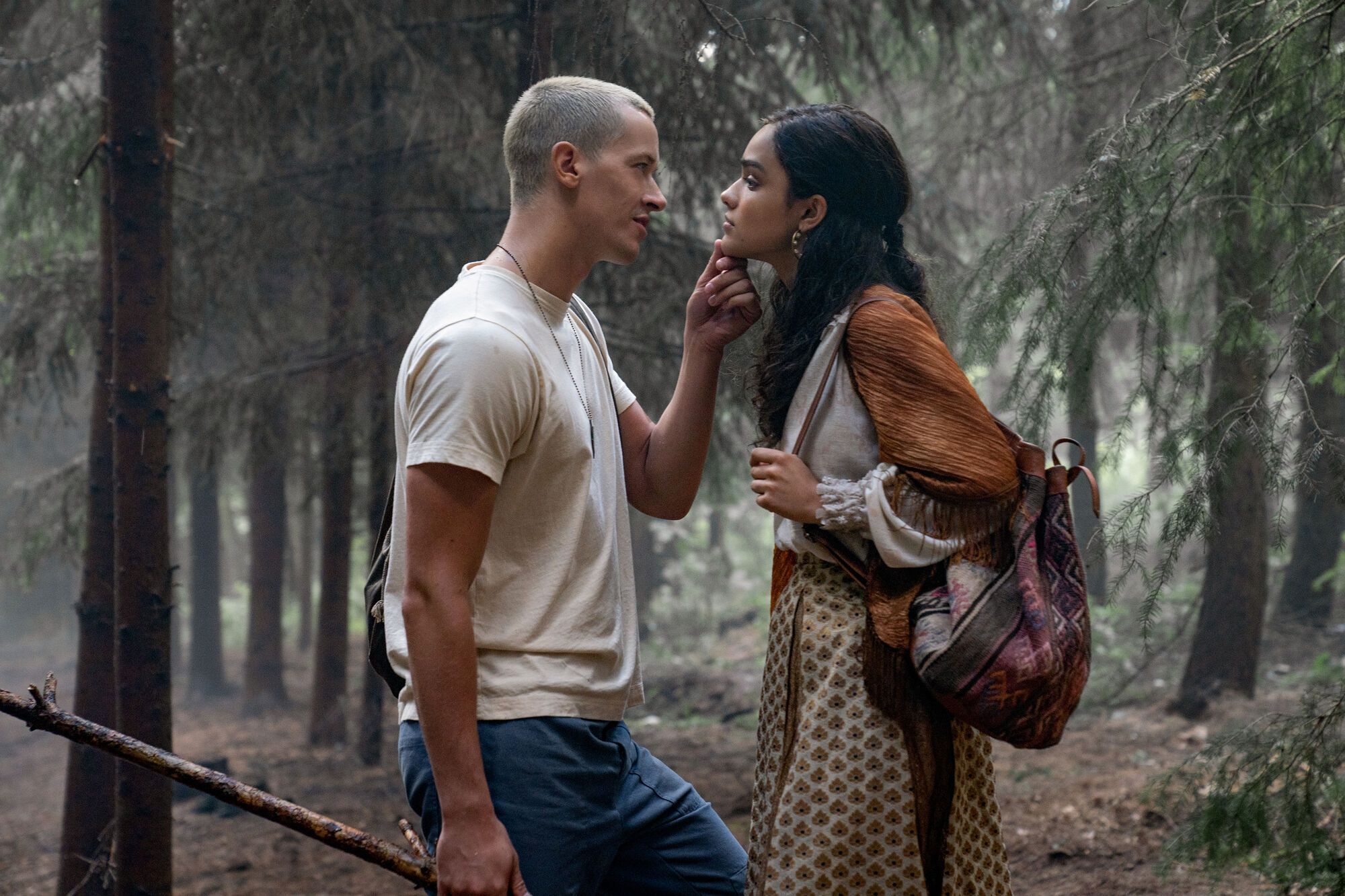News
The Ballad of Snakes and Songbirds: fundamental differences between the book and the movie. Exclusive
On November 16, the movie The Ballad of Snakes and Songbirds which is a prequel to the popular franchise, premiered in Ukraine. The original work is more than 500 pages long, but the creators of the project tried to fit the content into one movie without stretching it into two parts.
The film lasts less than three hours, but it conveys the main events, characters, and their interaction. To make the film as close to the original as possible, the author of the book, Suzanne Collins, took part in the filming. The press service of the Ukrainian film distributor Adastra Cinema told OBOZ.UA about the fundamental differences between the book and the movie.
The movie begins with "Dark Days"
The film begins with a flashback to young Coriolanus Snow and his cousin Tigris during the Dark Days, when the Capitol was in ruins and food was scarce. While searching for scraps of bread, they see a man chopping off a dead woman's limb in the street, hinting that some Capitol residents had resorted to cannibalism during the war.
Although this scene is played out very similarly in the book, it takes place in the text later. The book begins with Snow preparing to go to the Academy for Harvest Day.
Snow's father is killed by a rebel from District 12
In the book, Snow reveals that his father, Crassus Snow, was a military general killed by a rebel during the First Rebellion. However, the movie takes it one step further, with Snow's grandmother explicitly saying that he was killed by a rebel from District 12. The small correction further foreshadows President Snow's eventual hatred of Lucy Grey and her native district of Katniss in the original franchise.
The Plinth Prize is announced very early on
When Snow heads to the Academy in one of the first scenes of the film, he has high hopes of taking home the Plinth Prize, a monetary reward created by Strabo Plinth, a former citizen of the 2nd District who was able to buy his family's way into the Capitol after supplying them with arms during the Civil War.
Given his family's dire financial situation, Snow hopes to receive an award that will give him enough money to attend university. However, as the students are seated, Plinth's son apologizes to Snow, telling him that plans for this year's winner have changed.
The introduction of the Plinth Prize in the book is quite different. Strabo Plinth doesn't announce his plans for the prize until about halfway through the Hunger Games, when his son, Sejanus, sneaks into the arena, putting himself and Snow at great risk. As Snow says in the book, it was "a hasty attempt to bury his son's outrageous behavior with cash."
The presence of mentors in Hunger Games is a surprise
Another small amendment at the beginning of the movie is the news that the mentors in the Hunger Games will be students of the Academy. In the book, Snow had already been chosen as a mentor as one of the best students in his class, but in the movie, the appearance of mentors is a big shock.
When Dr. Gaul (Viola Davis) takes the stage, she announces that instead of giving the Plinth Prize to the best student, the award will be given to the person who proves to be the most promising mentor in the games. At the same time, Dean Casca Highbottom (Peter Dinklage) later added that the schedule is "simple": their job is to turn the tribunes into a spectacle, not survivors.
Snow and Sejanus Plinth work together to at least feed the tribunes
The alliance between Snow and Sejanus Plinth, the son of an arms dealer who is disgusted with the Capitol and the Hunger Games, plays out a little differently on screen. In the movie, they come up with a plan together to play down the fact that they helped the tribunes. In the book, however, it was all Sean's idea and the only reason Snow agrees to it at all is because he doesn't want his buddy to be the center of attention for reporters at the zoo. All the attention should be on Snow.
In the movie, he fulfills Lucy Grey's request, which speeds up the path to the "spark" between them for the movie.
Lepidus and Lucky's characters are united
Lucretius "Lucky" Flickerman (Josh Schwartzman), who is the Capitol's weather forecaster, is the very first anchor of the Hunger Games. Although Lucky is employed to conduct interviews for the games, most of the live reporting on the tribute at the zoo is done by a Capitol News reporter named Lepidus Malmsey in the book.
In the movie, however, their characters are somewhat merged. In addition, Lucky's signature pet parrot, Jubilee, does not appear in the movie, although the character still performs magic tricks.
Clemensia's fate is never revealed
Perhaps one of the biggest differences in the movie is that the fate of Snow's classmate Clemensia is never revealed. An ambitious and rich girl who likes to "share" academic victories with Coriolanus, after being bitten by one of Dr. Gaul's snakes, never appears on screen again, so the viewer can understand that she did not survive.
However, in the books, Clemencia survives but has strange side effects from the snakebite. While being treated in the hospital after the arena explosion, Snow comes face to face with Clemensia, discovering that her eyes have turned yellow, her tongue is periodically sticking out of her mouth, and she has iridescent scales like snakes.
After her hospital stay, she returns as a mentor in the Hunger Games, although her behavior has completely changed as she becomes particularly irritable and cold towards her classmates.
Some of the deaths in the Hunger Games happen differently
Several character deaths are changed in the movie. For example, the causes of death of Wovey and Dill are reversed. In the book, it is actually Wovey who drinks the poisoned water, and Dill dies of complications caused by tuberculosis.
In addition, Reaper's death happens differently. In the book, he manages to dodge Dr. Gaul's rainbow snakes, and the competition comes down to him and Lucy Gray. In their final confrontation, the heroine tries to tire Reaper out, knowing that he had previously contracted rabies from Jessup. In the end, Reaper dies when he drinks water from a puddle, not realizing that Lucy Grey has poisoned him.
Snow's time as a peacekeeper is significantly reduced
Various events during Snow's time as a peacekeeper are presented in the books in a slightly different way. In the movie, Snow is reunited with Sejanus on the train heading to District 12, but in the book, Plinth Jr. appears later. In fact, Snow is contemplating suicide when Sejanus arrives and informs him that he has also enlisted as a peacekeeper.
Furthermore, Snow's order to go to District 2 is revealed much earlier in the movie, while in the book he learns of his transportation plans only after he agrees to elope with Lucy Grey.
The confrontation between Lucy Grey and Snow in the cabin is different
The conversation between the characters in the cabin in the movie unfolds differently. After Snow finds the weapon in the cabin, Lucy Grey remarks that there are no obstacles to prevent him from returning to his past life in the Capitol, except for her. At this point, it seems as if Lucy is testing Snow to see if he is truly trustworthy.
However, in the book, they do not confront each other after the hero finds the weapon, and the theme of "loose ends" arises in his own inner monologue when he begins to wonder whether Lucy Grey is trustworthy.
However, internal monologues can only be conveyed on the big screen through a voiceover, which the director refused to use from the very beginning.
"We thought we had a fantastic story and incredible actors on our hands. Tom Blyth is one of those rare actors who can convey myriads of emotions with his eyes alone, so we refused to use monologues in favor of live acting," Francis Lawrence said in an interview with IMDB.
Earlier, OBOZ.UA wrote about six of the best roles played by French actress Adele Exarchopoulos. The fantastic adventure film Animal Kingdom was recently released on the big screens of Ukrainian cinemas.
Only verified information is available on OBOZ.UA Telegram and Viber. Do not fall for fakes!































